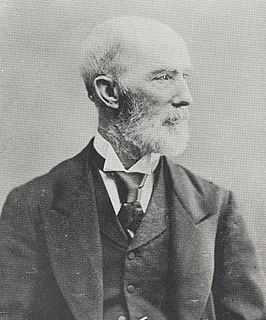A Quote by Edwin Percy Whipple
The universal line of distinction between the strong and the weak is that one persists; the other hesitates, falters, trifles, and at last collapses or "caves in.
Related Quotes
The thing that impressed me then as now about New York… was the sharp, and at the same time immense, contrast it showed between the dull and the shrewd, the strong and the weak, the rich and the poor, the wise and the ignorant… the strong, or those who ultimately dominated, were so very strong, and the weak so very, very weak - and so very, very many.
All attempts at law, all religion, all ethical norms might be nothing more than attempts by the weak to restrain the strong. Then, within the law, arise the new strong, who subvert the law for their own ends of power and family interest, leaving the old strong outside their circle to pursue the waiting possibilities which they call crime. The weak, the cowardly, the decent ones, live between these groups.
And here we come to the vital distinction between the advocacy of temperance and the advocacy of prohibition. Temperance and self-control are convertible terms. Prohibition, or that which it implies, is the direct negation of the term self-control. In order to save the small percentage of men who are too weak to resist their animal desires, it aims to put chains on every man, the weak and the strong alike. And if this is proper in one respect, why not in all respects? Yet, what would one think of a proposition to keep all men locked up because a certain number have a propensity to steal?
Distinction between species and specimen is very much like the distinction between images and actual pictures, or, you know, objects that have a definite material identity. The classifications, the categories, the stereotypes, and the images are on one side, and the material pictures, statues, texts, and so forth are on the other.
... woman's cause is the cause of the weak; and when all the weak shall have received their due consideration, then woman will have her "rights," and the Indian will have his rights, and the Negro will have his rights, and all the strong will have learned at last to deal justly, to love mercy, and to walk humbly; and our fair land will have been taught the secret of universal courtesy which is after all nothing but the art, the science, and the religion of regarding one's neighbor as one's self, and to do for him as we would, were conditions swapped, that he do for us.
The flop bet is a useful tactic for both old-school and new-school players because it can be effective if you are strong, weak, or somewhere in between. Betting out weak on a bluff can allow you to pick up an uncontested pot while betting out strong gives you the opportunity to control the size of the pot.
The popular distinction between 'constructive' and 'destructive' criticism is a sentimentality: the mind too weak to perceive in what respects the bad fails is not strong enough to appreciate in what the good succeeds. To be without discrimination is to be unable to praise. The critic who lets you know that he always looks for something to like in works he discusses is not telling you anything about the works or about art; he is saying 'see what a nice person I am.



































